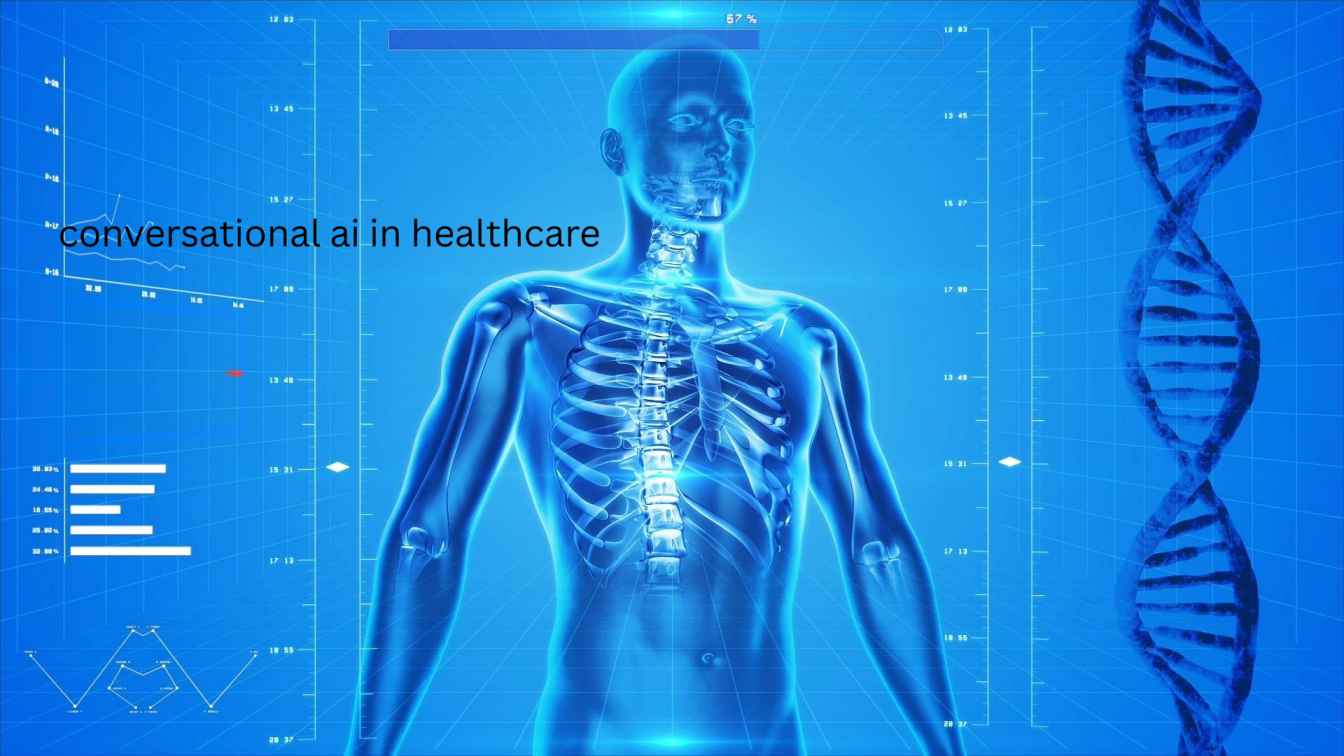Last updated on December 20th, 2025 at 06:33 am
I’m not going to lie just the sound of AI chatbots managing healthcare interactions made me think it was another tech gimmick. You know, just like those automated phone systems that force you to say “representative” for the fifth time before throwing in the towel.
But then I peeled back the onion on what’s really happening with conversational AI in health care and it’s so much more complicated than those attention-grabbing headlines would suggest.
Table of Contents
What’s Actually Going On Here
Conversational AI in healthcare is no longer just your run-of-the-mill chatbot. We are talking voice-enabled tech underpinned by AI to enable doctors to deliver improved patient care using virtual assistants and advanced chatbots capable of scheduling appointments, mimic real-life conversations and address clinical queries.
The market numbers are soaring predicted to grow from $16.9 billion in 2025 to $123.1 billion by 2034. That’s not hype money. That is “this thing is solving real problems” money.
I’ve watched something like Intermountain Health’s AI assistant handle 79% of incoming chats without staff intervention, averting thousands of calls a month. Patients with chronic ailments can now query virtual assistants about which medications they missed or send blood pressure tests between checkups and receive real-time follow-up. It’s practical stuff that works.
The Issues That Are Not Getting Enough Attention
Here’s where it gets messy. There are three big reasons you won’t see this tech everywhere, and they’re not trivial problems.
Your Data Is Not as Secure as You Think
Around 40% of doctors are concerned that A.I. will compromise patient privacy. Here’s why: these systems require gigantic training data sets to learn from, and often some of that data contains private health information.
There are unauthorized access risks that could result in HIPAA violations, data leaking and the resultant exposure of sensitive training data from machine learning models, as well as prompt injections that can successfully fool large language models into leaking personal data.
This is not mere paranoia criminals have the ability to copy people’s medical services and devices and demand ransom payments, while there may be a chilling effect on social lives, education and work. Add to that the increasing number of ransomware attacks on hospitals and the stakes have never been higher.
The Black Box Problem
Most AI algorithms are black boxes. Developers can’t (or won’t) articulate how decisions are reached. Imagine if your doctor could point to lab tests, concluding that after running a complex set of algorithms an artificial intelligence alchemy riddle more impenetrable than phlogiston or homunculus homilies an ailment no human could perceive had been divined. It’s the one that exists for many today.
When A.I. systems are trained on incomplete or biased data, they become prone to perpetuating inequities in medicine. The AI exacerbates and perpetuates the existing health disparity if the data poorly represents some populations.
No One’s Ready (And They Know It)
Hospitals themselves are resistant to change, and not all practices have well-thought-out AI strategies that align with business objectives. On the industry side, 55 percent of hospital leaders receive multiple messages a week about digital health solutions, which clouds the minds of decision-makers if they’re not focused.
Staff worry about job replacement. Organizations already have a hard time with data silos and interoperability. That there are no designated approval mechanisms for AI systems is primarily due to distrust.
FAQ: The Real Questions
Is conversational artificial intelligence actually ready for patient care?
If appropriately developed and thoroughly validated, one recently conducted large‐scale assessment comprising more than 307,000 simulated patient contacts reviewed by licensed clinicians indicated that generative voice agents achieve medical advice accuracy rates above 99% and did not cause any potential severe harm.
Safety rests on well-trained systems, constant vigilance, and clear procedures for escalating complicated cases to humans.
Will AI replace doctors and nurses?
No. The aim of conversational AI platforms isn’t to replace physicians, but to provide them with an additional layer of support by relieving some common pain points in their daily workflow.
But Optum’s AI-enabled solution is capable of conducting routine administrative work, patient education and documentation support to allow clinicians to concentrate on intricate clinical decisions and the human touch.
What do patients really think?
Support of AI in patient-services 83% The percentage of people comfortable with artificial intelligence use in medicine for back-office activities, according to research. People like that it is available around the clock, with shorter wait times and quicker access to information.
Acceptance is also higher when businesses plainly tell customers what AI does and provide a quick escalation route to knowledgeable human staff as necessary.
The Bottom Line
Conversational AI in health care is not a perfect solution, and anyone selling it otherwise is not telling the truth. The privacy risks are real. The bias problems are documented. The implementation challenges are significant.
But here’s what I discovered: implemented judiciously and with appropriate safeguards, this tech genuinely makes a difference. Users of ambient AI documentation were 7 times more likely to report easier documentation workflows and 5 times more likely to finish their documentation prior to the next patient encounter, along with increased work satisfaction and lower burnout risk.
It’s not a matter of whether conversational AI has a place in healthcare. It’s already there. The question is whether we’ll do so responsibly with honesty about the limitations some serious attention to privacy and security, which were never particularly in evidence for data-sharing writ large and a real commitment to keeping humans at the center of care.
That’s the discussion we need to be having.
I’m a technology writer with a passion for AI and digital marketing. I create engaging and useful content that bridges the gap between complex technology concepts and digital technologies. My writing makes the process easy and curious. and encourage participation I continue to research innovation and technology. Let’s connect and talk technology!



